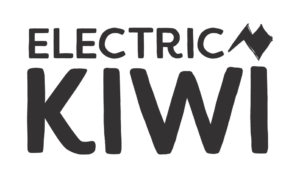KEY POINTS
- New legislation from the Electricity Authority is forcing large power retailers to offer their customers time-varying pricing plans, which provide cheaper off-peak power.
- However, many electricity providers already have plans that deliver off-peak power savings.
- Off-peak power plans offer cheaper electricity at times of lower demand, which include weekday periods from 11am-5pm, overnight and at weekends.
- If you can switch your use of power-hungry appliances to off-peak periods, you can save money on your power bills.
One of the easiest ways to save money on your electricity bill is to make the most of off-peak power. But not all power providers have plans that offer cheaper power at off-peak times.
However, this is about to change. New legislation from the Electricity Authority is forcing large power retailers to offer time-varying pricing plans to their customers.
Power companies have a year to comply, but many electricity providers already offer plans that deliver off-peak power. So there’s no excuse to not chase the savings on offer today.
Below we run through the details of time-of-use electricity plans, and reveal what’s already on offer from NZ power companies.
What is peak/off-peak power?
A standard power plan charges a flat rate for power, regardless of when that electricity is used.
But if a power plan features time-of-use pricing, it charges different rates for electricity, depending on the time of day. The cost of power used during peak times is more than when demand is lower.
For example, these are the current power prices per kWh offered by one provider for an Auckland address:
- Peak: 0.32959c
- Off-peak: 0.23759c
- Night: 0.164795c
What are peak and off-peak electricity times?
Peak power times differ between providers but, generally speaking, peak power times are: Monday to Friday, 7am-11am and 5pm-9pm.
Off-peak times can vary, too. Some providers have different off-peak price bands, including overnight and weekend power that’s cheaper than off-peak electricity during the week
Is a peak/off-peak power plan right for me?
Whether a time-of-use power plan is right for you depends on your electricity usage and your ability to make use of the cheaper power times. For example, can you use major appliance, such as your dishwasher and washing machine, during off-peak times.
Also you may find that a power plan offers a great night rate but, to compensate, its peak rates are higher, which could offset any savings.
Peak/off-peak tariffs may be best for:
- EV owners – who can use the cheap night rates to charge their EVs.
- People who work odd hours – if you work nights and are home all day, for example, you can run your power-hungry appliances during cheaper daytime rates.
- People who work from home – working from home can really add to your power bill. Cheaper power through the middle of the day can make a big difference.
- Night owls and early birds – up extra late or extra early during off-peak times? Use those hours for showers, doing your laundry and running your dishwasher.
Aside from the rates on offer, there are plenty of other factors to consider when choosing a power provider, which might determine whether a time of use plan is right for you.
Does your provider offer:
- Signing on credit/deals.
- Free power hours.
- Excellent customer service.
- Helpful online tools and/or a great phone app.
- The ability to bundle other utilities such as broadband, gas, and/or phone plans for further savings.
- Flexible contracts with no tie-in period.
Compare electricity providers for free with Canstar Blue!
Peak and off-peak power plans: what’s available?
Below is an overview of the major electricity providers in New Zealand that offer peak and off-peak electricity rates. Do note that rates vary depending on location, so be sure to visit retailers’ websites for personal quotes.

Electric Kiwi
Electric Kiwi’s MoveMaster plan offers discounted rates during off-peak shoulder times and half-price rates overnight. Notably, its morning peak rates are just 7am-9am. Whereas many other providers charge peak rates until 11am. Throw in the fact that all Electric Kiwi plans come with a daily hour of free off-peak power, and there are plenty of savings on offer.
Peak times: 7am-9am, 5pm-9pm on weekdays
Off-peak shoulder times: 9am-5pm, 9pm-11pm on weekdays, 7am-11pm on weekends
Half price night times: 11pm-7am daily
![]()
Octopus Energy
Octopus Energy offers some great rates. Its off-peak rates include half-price energy at night.
Peak times: 7am-11am, 5pm-9pm
Off-peak: 11am-5pm, 9pm-11pm (weekdays) & 7am-11pm (weekends)
Night: 11pm-7am every day
![]()
Powershop
Powershop has Get Shifty rates, which offer discounted electricity rates during off-peak hours and overnight in some areas.
The times differ depending on your area and network, but in most areas peak rates fall within the standard times of: weekdays 7am-11am, 5pm-9pm.
Off-peak times generally fall between 11am-5pm, 9pm-7am weekdays, and all day on weekends. Night rates are generally between 10pm and 7am.

Ecotricity
Ecotricity sets itself apart as New Zealand’s only provider of 100% renewable and carbonzero certified electricity. Its ecoSaver plan offers savings of up to 50% on power during off-peak times:

Contact
Contact Energy has three plans that offer cheaper power:
- Good Weekends: free power 9am-5pm every Saturday and Sunday
- Good Nights: free power 9pm-midnight Monday to Friday
- Good Charge: half price power 9pm-7am every night of the week
Night/off-peak EV power plans
While these providers don’t offer standard time-of-use rates, they do have plans with discounted night rates for EV owners. While these plans are primarily designed to save on EV charging costs, you can run other appliances during these hours to make the most of the discounted rates. Note that each of the following plans require evidence of EV ownership.

Meridian
Meridian’s EV Plans offers discounted electricity from 9pm to 7am every night.
Currently Meridian is also offering six months’ of free EV charging at home, in the form of a $35 monthly credit.

Genesis
If you have an EV, Genesis will give you half-price power from 9pm-7am every night.

Mercury
Mercury’s EV Fuel Package applies a 20% discount to your existing Mercury plan between 9pm and 7am every night.
Compare electricity providers with Canstar Blue
Canstar Blue rates NZ power companies for customer satisfaction and value for money, see the table below for some of the results, or you can click on the button below for the full results of our survey.
Canstar Blue’s latest review of NZ power companies compares them on customer satisfaction. The table below is an abridged version of our full results, available here.
^ By clicking on a brand or 'details' button, you will leave Canstar Blue and be taken to either a product provider website or a Canstar Blue NZ brand page. You agree that Canstar Blue NZ’s terms and conditions apply (without limitation) to your use of this service,to any referral to a product provider from our website, and any transaction that follows. Canstar Blue may earn a fee for referrals from its website tables, and from sponsorship (advertising) of certain products. Payment of sponsorship fees does not influence the star rating that Canstar Blue awards to a sponsored product. Fees payable by product providers for referrals and sponsorship may vary between providers, website position, and revenue model. Sponsorship fees may be higher than referral fees. Sponsored products are clearly disclosed as such on website pages. They may appear in a number of areas of the website such as in comparison tables, on hub pages and in articles. Sponsored products may be displayed in a fixed position in a table, regardless of the product’s rating, price or other attributes. The table position of a sponsored product does not indicate any ranking, rating or endorsement by Canstar Blue. See How we are funded for further details.
Canstar Blue NZ Research finalised in June 2025, published in June 2025.
See Our Ratings Methodology
Compare electricity providers for free with Canstar Blue!
 About the author of this page
About the author of this page
Bruce Pitchers is Canstar NZ’s Content Manager. An experienced finance reporter, he has three decades’ experience as a journalist and has worked for major media companies in Australia, the UK and NZ, including ACP, Are Media, Bauer Media Group, Fairfax, Pacific Magazines, News Corp and TVNZ. As a freelancer, he has +worked for The Australian Financial Review, the NZ Financial Markets Authority and major banks and investment companies on both sides of the Tasman.
In his role at Canstar, he has been a regular commentator in the NZ media, including on the Driven, Stuff and One Roof websites, the NZ Herald, Radio NZ, and Newstalk ZB.
Away from Canstar, Bruce creates puzzles for magazines and newspapers, including Woman’s Day and New Idea. He is also the co-author of the murder-mystery book 5 Minute Murder.


Share this article